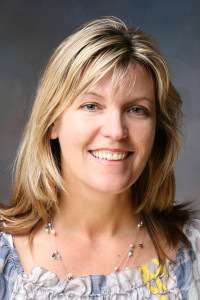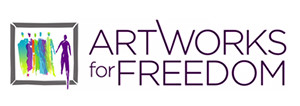In our Freedom Q&A series, we interview artists, NGO leaders, academics, students, grassroots activists and others around the world who are using their voices and creative skills to fight human trafficking.
This week, we hear from Sarah Symons, Co-founder and Executive Director of Her Future Coalition.
 Learning of the horrors of human trafficking can be a life-changing experience. Just ask SARAH SYMONS, Co-founder and Executive Director of the anti-trafficking nonprofit Her Future Coalition.
Learning of the horrors of human trafficking can be a life-changing experience. Just ask SARAH SYMONS, Co-founder and Executive Director of the anti-trafficking nonprofit Her Future Coalition.
Sarah was enjoying a career as a recording artist and TV music composer when she learned of human trafficking through the film “The Day My God Died.” Moved to become involved in the issue, Sarah and her husband John Berger threw themselves full-time into the anti-trafficking fight and, in 2005, founded Made By Survivors, now Her Future Coalition, which provides vocational training, education and employment to over a thousand survivors in India, Nepal, Cambodia and Thailand. Using training programs in professions like metalsmithing and accounting, Her Future Coalition gives hope and a trajectory forward for those who have been victimized by trafficking.
Further, as the organization’s name implies, products made by survivors can be purchased by supporters looking to do a little shopping! Consumers looking for unique jewelry, scarves and woven bags that are not only ethically made but offer residual benefits to the anti-human trafficking movement worldwide can start at the Her Future Coalition website.
In 2013, Sarah wrote about her experience as an anti-trafficking activist in her memoir This is No Ordinary Joy: How the Courage of Survivors Transformed My Life. She and her husband exemplify that everyday people can become difference makers in the fight against human trafficking by believing that there is something every person can and should do. Here are her thoughts on the importance of the anti-trafficking movement.
Why is the fight against human trafficking something that everyone should be involved in?
Modern slavery is a growing worldwide problem, preying on the world’s most vulnerable people. It interrelates with so many other issues that people are concerned about: poverty, gender discrimination, racial or caste discrimination, child labor, child marriage, disability rights, the environment and more.
Slavery destroys millions of lives. It is like genocide in slow motion, because many victims do not survive the experience, either physically or spiritually. This is an injustice that simply cannot stand, and one of the most painful aspects for people trapped in slavery is feeling that they are invisible, that no one cares, that not enough is being done to help. Their feelings are understandable. There should be a stronger outcry against this. We should all stand up and get working to end slavery and to free and empower every enslaved person, once and for all.
At ArtWorks, we believe raising awareness is the first critical step to eradicating human trafficking. What do you think is needed to raise the profile of this issue?
Multiple approaches and communities are needed to raise the profile of the issue, including the arts, mass media, journalism, schools and colleges, community groups, faith communities [and] individuals discussing this with their friends. Many people in the U.S. are becoming at least marginally aware of the issue of trafficking, so I think an even bigger challenge now is galvanizing people into action to fight slavery.
Is there a time when you became emotionally overwhelmed as an anti-trafficking activist? How did you overcome that difficulty?
Of course! That happens all the time. It is devastating to see people in distress who have been – or are still being – abused and dehumanized. You never get used to seeing survivors small enough to sit on your lap, or to seeing ruin and hopelessness behind a person’s eyes. I find it easier to cope now that I have been working on the issue for a while (10 years) because I have seen so many people come back from the brink and make amazing recoveries. Now I understand that even when a situation appears bleak, incredible healing is possible. Many survivors are incredibly resilient – they are able to rediscover their happiness and identity, to build a bright future and to help others. That gives me hope in the midst of feeling overwhelmed. I’m also thankful for the love and support of family and friends, yoga, wine, nature and my dogs, all of which have helped me through moments of despair arising from this work.
Is there a quote, saying or piece of art that inspires you as an activist?
“Freedom is indivisible, and when one man is enslaved, all are not free.” ~John F. Kennedy
And I am very inspired by Kay Chernush’s photographs and art from Artworks for Freedom!
How do you respond to people who say, “There’s nothing that can be done to stop human trafficking”?
People said the same thing about women’s suffrage, abolition (the first time around), civil rights, apartheid, breast cancer, AIDS and so many other issues. Certainly if you do nothing, the evil of slavery will continue, and will grow, because the people perpetuating and benefiting from it are working day and night to ensure it’s continuation. We need to ‘start by starting’ and get busy. This evil cannot stand, and we who believe in freedom cannot rest until it comes!
***
Watch the video to learn more about Made By Survivors/Her Future Coalition and its partners.



Leave a Reply
Want to join the discussion?Feel free to contribute!